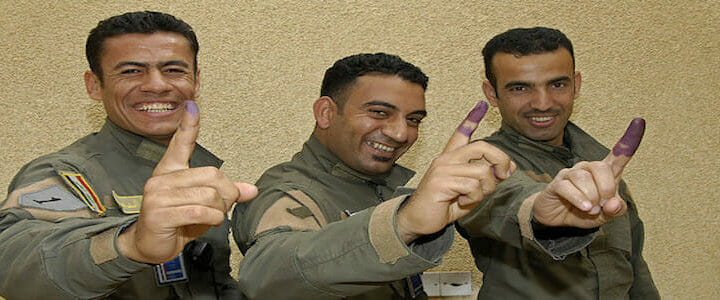If there’s one common thread that has run through world politics for the last several years, it’s the rise of populism. People everywhere are rejecting the “political elites” in favor of firebrands who say popular but impolite things and buck political conventions.
The trend is visible in the success of Great Britain’s “Brexit” vote to leave the European Union in 2016, the April 2018 landslide victory for the Fidesz party of Hungarian Prime Minister Viktor Orbán, the stronger-than-expected performance of the Five Star Movement in Italy’s March 2018 parliamentary elections, and of course, in the 2016 election of President Donald Trump here at home.
The populist fervor has not been confined to the West, however. As the votes are counted in Iraq’s parliamentary elections, the current front-runner is none other than Moqtada al-Sadr, a former insurgent leader who has “transformed” himself into a populist, even supposedly nationalist, political leader. He has even openly criticized his former patron, Iran, if you can believe that.
Sadr is the son of a prominent anti-Saddam activist, the Iraqi Shi’ite cleric Grand Ayatollah Mohammad Mohammad Sadeq al-Sadr, who was assassinated along with two of his sons in February of 1999. If he were anyone else’s son, Moqtada al-Sadr would be the Baghdad version of Luca Brasi, the loyal but dimwitted mafia muscle. Instead, he’s heir to the throne; Michael Corleone without the charm.
The Beneficiary of Iranian Assistance
We now know that the Iranian Revolutionary Guards Corps, the most elite force in the Iranian military, was preparing to take advantage of an American invasion of Iraq long before it happened. Shortly after the invasion, they approached Sadr, who as the only surviving son of a prominent cleric and someone who they thought to be easily manipulated, presented the perfect target.
Much to the dismay of other, more prominent, educated—and frankly, intelligent—Shi’ite clerics, Sadr traveled to Tehran in June 2003 to meet with the most senior officials, including Supreme Leader Ayatollah Ali Khamenei. While Sadr certainly wasn’t the only insurgent to benefit from Iranian assistance, his group, Jaysh al Mahdi, the Mahdi Army (shortened to JAM in Army-speak) also benefitted from the assistance of Iranian-sponsored Hezbollah terrorists from Lebanon.
JAM most famously employed hundreds of deadly Iranian-manufactured explosively formed penetrators across Iraq. The EFP is a massive roadside bomb that uses a shaped charge of explosive to form a copper disc into a molten dart capable of penetrating several inches of armor. According to declassified reports, insurgents detonated 1,526 EFPs in Iraq between 2005 and 2011, killing 196 U.S. troops and injuring another 861. While this is a fraction of the 4,541 U.S. deaths in Iraq, the EFP was a particularly terrifying weapon because of its ability to penetrate the armor on an MRAP, the mine-resistant ambush-protected vehicles that represented the latest advancements in armor protection.
Ballot Box and Armalite
Sadr gradually moved his activities away from armed struggle to political involvement. He’s hardly the first to do so. Nelson Mandela in South Africa, Jomo Kenyatta in Kenya, Gerry Adams and Martin McGuinness in Northern Ireland, and Menachim Begin in Israel are but a few examples of men who have used terror tactics, but who ultimately turned to politics to achieve their aims.
While not a candidate himself, Sadr controls the party leading the polls. If the results hold, he will be in position to select the next Iraqi prime minister. That prospect should terrify U.S. policy makers. Iraq is still important ground in the fight against ISIS, and the man who led the charge against the U.S. occupation, and who spent years in exile in Iran, is poised to be the kingmaker. Moqtada al-Sadr could well control the future of American ability to remain on the ground in Iraq.
So forgive me for remaining skeptical about the supposed split between Sadr and the Iranian regime.
While Sadr talks a good game, Iran chose him over the other Shi’ite clerics for a reason: he is malleable. I remain unconvinced that he is anything more than a puppet of the Iranians in the shadows who pull the strings. Iran sees itself as the supreme ruler of all Shi’ite Muslims, and Iraq is a majority Shi’ite country. There is simply no way I can believe that Sadr was able to shed Iranian control so easily.
We’re in for a bumpy ride in Iraq.




